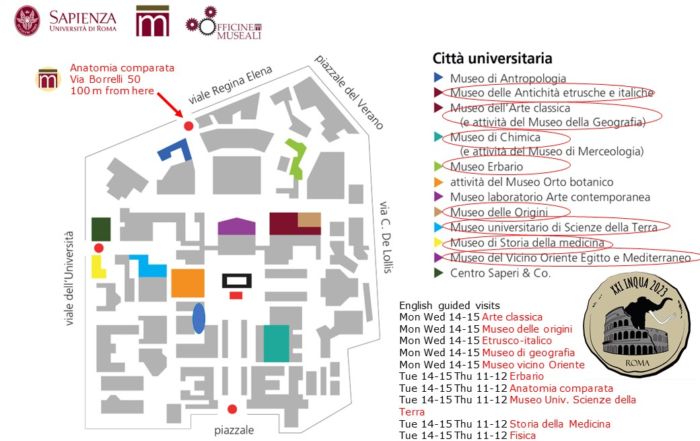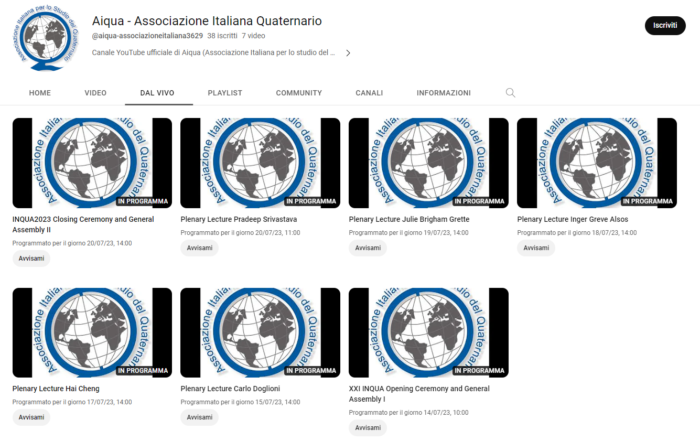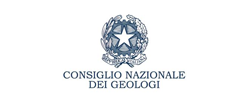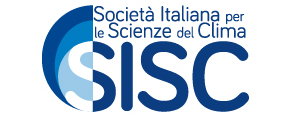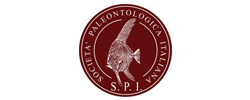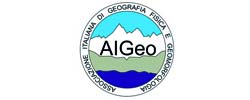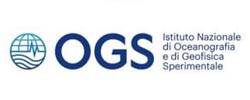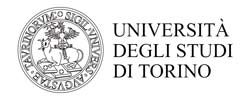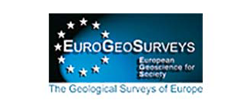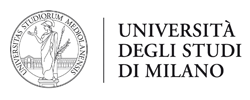Dear Colleagues
It is our pleasure to invite you to Rome for the XXI INQUA Congress from 13 – 20 July 2023. We strongly believe that in-person conferences provide unique opportunities for networking and collaboration; therefore, despite the uncertainty linked to the circumstances related to the future pandemic in summer 2023, in agreement with INQUA officials, we are planning an in-person meeting with a full scientific program, including keynotes, symposia, courses, and abstracts. The scientific program has therefore been planned as in-person presentations only. However, we do reserve the possibility to cancel the Congress or part of it (fieldtrips, for instance) if situation requires see refunding policy for details.
We want to take this occasion to rekindle the pioneering spirit of the 4th INQUA Congress, held in 1953 in Rome and Pisa. The 2023 venue will be the Sapienza University main Campus (conveniently located in the east of Rome, close to main train and subway stations) in order to present our research in a friendly university environment with reduced registration fees. Moreover, in 2023 we will join celebrations with special events commemorating the 720th year since the foundation of Sapienza University and the 150th anniversary of the Italian Geological Survey.
The theme of our congress is “Time for Change” to emphasize the critical role of Quaternary sciences in contributing the knowledge we need to face current societal and climate challenges. In fact, the understanding of the global changes cannot be achieved without the scientific knowledge of how Earth has changed during the recent geological past. As such, it is very appropriate to convene the international Quaternary community in Italy; the Mediterranean region is so geologically young and active, it is the ideal location to discuss the process and events that shaped the landscape, environments and ecosystems over the last 2.58 million years.
From the glacial systems in the Alps .to the desert facing the southern shore, from the large coastal plains and deltas to the rocky coasts where the mountain ranges reach the sea, from the karst to the lacustrine to the volcanic environments – numerous Quaternary features are present in the region. From early humans in Durban, the view from the Alps in Bern, the geohazard in Nagoya, and the life on the edge in Dublin, in Rome we will have the opportunity to deepen discussions about all these subjects together, and to discuss their mutual interactions at a Quaternary scale. For instance: did the climatic/eustatic changes in palaeogeography and palaeoenvironment influence the early humans’ dispersal and the Neolithic revolution from east-to-west or from south-to-north? How did changes in tectonic activity, climate and eustasy (and in some cases massive volcanic inputs) interact in determining the stratal architecture of high-order depositional sequences? Are the long-lasting historical archives the clue to fill the gap between the instrumental data and the geological record in defining climate, seismic, volcanic cyclicality and/or evolution?
These are just examples that will be dealt during fieldtrips and scientific sessions in Rome/Italy/ Mediterranean region in 2023.
The Congress is being organised by Sapienza University, the National Research Council and the Italian Association for Quaternary Research, with the support of the whole Italian scientific community and with Mediterranean organizing fieldtrips in the region.
The organizing committee is enthusiastically working to make the Congress a notable experience and many outreach and national scientific initiatives are rising around it, the main one being the METIQ (evolutionary model of Italy during Quaternary), aimed at producing a 1:500.000 map of the Quaternary deposits in Italy that will be presented at the Congress.
The Local Organising Committee and the Quaternary Community of Italy and the Mediterranean invite you to attend the XXI INQUA and extend the famous Italian hospitality to all Quaternarists globally.
Prof. Francesco Latino Chiocci, President
Ilaria Mazzini, Secretary-General XXI INQUA Congress
Dear colleagues,
It is an honour for me, President of INQUA, to invite you to attend the next INQUA Congress that will take place in Rome in July 2023. The INQUA Congress that generally takes place every 4 years is, by far the most important event for our Union. INQUA was nominally founded almost 100 years ago, in 1928 at a geological conference in Denmark. Several meetings followed including the IV INQUA Congress in Italy in 1953. More recent meetings were in 2003 (Reno, USA), 2007 (Cairns, Australia), 2011 (Bern, Switzerland), 2015 (Nagoya, Japan) and 2019 (Dublin, Ireland).
The International Council (IC) of INQUA decided at the Dublin Congress that the XXI INQUA Congress will take place in Rome; a decision that acknowledge the importance of the region and the role Italian Quaternary scientists play in the international debate. By awarding the Italian bid, the IC also acknowledge that fact that Italian scientists played an active role within INQUA. During the past decades, Italy was well represented at different levels of the INQUA organisation.
The organisers of the INQUA Rome 2023 Congress offer a very ambitious program around the theme “Time for Change” emphasizing the critical role of Quaternary sciences in contributing the knowledge we need to face current societal and climate challenges. Time for Change characterises also INQUA’s current phase. The changing world and the pandemic in particular, have a major impact on INQUA’s core business i.e. to promote improved communication and international collaboration in experimental and applied aspects of Quaternary research. It is time to improve our communication with the Quaternary scientific community by launching a monthly INQUA Newsletter, to improve our service to the Quaternary research community by increasing the number of funding categories and by simplifying the funding application procedure to mention some of the changes. In order to support the INQUA Executive in making the changes, a secretary has been employed by January 15, 2022.
The organisers of the INQUA Roma 2023 Congress not only offer a Congress with an attractive and inspiring scientific program, they organise the meeting in a unique venue; at the campus of the Sapienza University of Rome an architectural masterpiece, in the centre of Rome.
I am convinced that the participants of XXI INQUA Roma 2023 Congress will go home inspired, with many new ideas, increased knowledge and with an indelible memory of the Congress and its venue.
Prof Thijs van Kolfschoten
INQUA President
Dear participants at the XXI INQUA Congress,
As Rector of Sapienza University of Rome, I am pleased to welcome you to our main campus in summer 2023.
We are an innovative and comprehensive research University built on a long-standing teaching tradition. Founded in 1303, Sapienza is the largest University in Europe with more than 100,000 students and 3,359 academics organized in 11 Faculties, 58 Departments and 18 Museums; during its 700 years of history, Sapienza has always promoted cultural events, with a particular focus on scientific conferences and meetings.
We are very proud to be hosting such an important Congress about Quaternary Research. Although representing a small percentage of the Earth’s history, the Quaternary Period is unique among the divisions of geological eras in that it includes the present day. Thus, the events of this short time interval are important to society, as our genus appeared during the Quaternary, and significant and abrupt climate changes have shaped its evolution.
Quaternary sediments, glaciers, landforms contain most of the proxies about past climate changes and catastrophes relevant to us. As scientists, we know that the geological past, which most people consider remote, directly links with present-day life. With a long-term perspective, you are studying the processes that created and characterized the present-day environment, landscape, and climate. Only your geological perspective may allow you to discriminate between trends and cycles, frame the high-tech environmental observations within the proper time scale, and understand the relationship between the different factors controlling the environmental changes we are experiencing. As Quaternary researchers, you are at the forefront of the scientific community to provide information to the public and policymakers. The 17 UN Sustainable Development Goals are guidelines for the future, and Quaternary research should serve as a key instrument in transforming more innovative and more sustainable societies. Sapienza University is deeply involved in this process and is proud to be hosting your Congress.
I warmly invite you to our campus, and I hope to see you at the opening ceremony in 2023.
Prof. Antonella Polimeni
Rector of Sapienza University of Rome
IMPORTANT DATES
15 May 2022 – Abstract submissions open
1 July 2022 – Financial support request opens
28 November 2022 – Deadline abstract submission and financial support request
29 November 2022 – Early Bird registration opens
1 February 2023 – Formal notification of acceptance for abstract and financial support
28 February 2023 – Early Bird registration closes, Field trip registration closes, Regular Registration opens
20 March 2023 – Deadline for presenting authors to finalise their payment, in order to be included in, or be deleted, from the final programme.
15 June 2023 – Third Circular: final program
10 July 2023 – Regular registration closes and late registration opens
13 July 2023 – Onsite registration opens
NEWS
English guided visits
Constanza2023-07-11T15:09:42+02:00July 11th, 2023|Comments Off on English guided visits
English-guided visits to the Sapienza University museums Special tours in English [...]
Conference Streaming
Constanza2023-07-11T14:23:40+02:00July 11th, 2023|Comments Off on Conference Streaming
General Assemblies, including Opening and Closing Ceremonies, and all the Plenary [...]
Recent Tweets
Recent Tweets
Congress and Pandemic
Despite the fact that we are still dealing with the pandemic situation and the many restrictions, we are optimistic about the future and about the possibility to organize in person the next INQUA Congress in summer 2023. In any case, thanks to the good weather we are expecting in Rome and the facilities of the Sapienza University Campus, we plan to have as many activities as possible in open spaces outdoors.
However, if the situation is intermediate (to read which is unlikely in summer, but we have to foresee this possibility) we are not planning a hybrid format but we will adopt a number of measures to protect congress participants for instance: 1) set up a test centre at the Congress venue; 2) adopt ad-hoc measures during the meeting such as mask wearing, hand disinfection, lunch bag and dispersed seating for meals, specific strategies to avoid queues; 3) organize the oral sessions with a limited number of participants in the room, even duplicating the screen between two or more adjacent lecture rooms. Only if the situation is very bad and travel abroad becomes impossible due to formal rules or restrictions issued by Italy or by the originating country, we plan to fully reimburse all the expenses for registration, including bank transfer costs.
